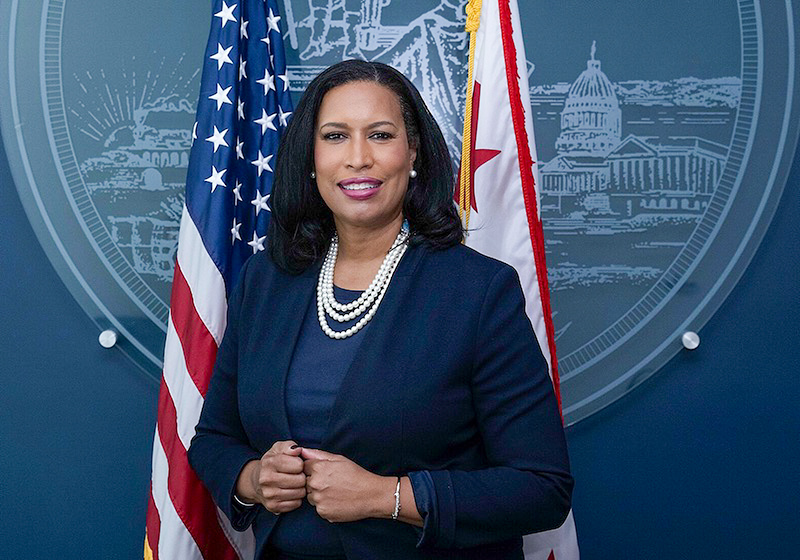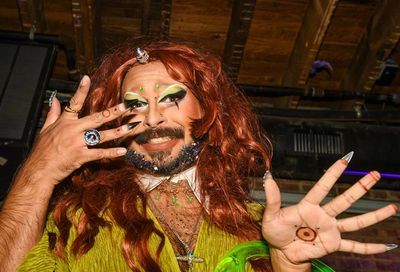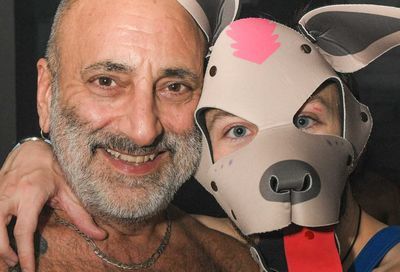Back-n-Forth Budget
Council saves HIV/AIDS funding while spring shortfall looms, and The Center anticipates two new grants
The D.C. City Council relieved some concern last week for HIV/AIDS organizations receiving city funding by voting to restore budget cuts proposed by outgoing Mayor Adrian Fenty (D).
”We’re absolutely thrilled by the council members’ action,” says Don Blanchon, Whitman-Walker Clinic’s CEO. ”We want to commend both Councilmember [David] Catania (I-At large) and Councilmember Yvette Alexander (D-Ward 7) for their efforts to make sure that these really needed testing and counseling grants are fully funded.”
The clinic is one of many organizations providing HIV/AIDS-related services in D.C.
Blanchon says the clinic receives about $145,000 annually from the D.C. government to support its free testing and counseling services. The Fenty budget proposed a 10 percent reduction.
While Blanchon says losing about $15,000 would not have caused the clinic to cease any services, instead forcing the clinic to increase its fundraising as the services are simply too crucial to reduce.
”We do so much testing and counseling, both through the mobile van and on-site, that’s a service we’re not going to scale down on – particularly at a time when the HIV and STD stats for our city are so troubling.”
This vote to restore, however, may be only a temporary reprieve, he warns, pointing to larger budget cuts expected come spring.
”The council closed the short-term [budget] gap. The real challenge is going to come this spring because they’ve got a really big deficit,” he says. ”They’re projecting about a $440 million dollar gap. They closed about a $188 million dollar gap with these sets of actions and I think everybody is wondering, kind of, what’s next. It will come very quickly because they usually finish up their budget work in May, so we’re not out of the woods yet by any means.”
The Center, the area’s LGBT community center, hasn’t had to worry much about city funding cuts in that it hasn’t received any city funding, says Center President David Mariner. But he’s expecting that to change in the new year with grants The Center has nearly secured for HIV and tobacco-cessation programs.
”If you look at community centers around the country, about 30 percent of their funding comes from state and local government,” says Mariner. ”That allows them to address health disparities that disproportionably impact LGBT folks.
”That can be mental health. It can be HIV/AIDS. It can be tobacco. I think that whenever there are issues that impact LGBT folks, LGBT folks have to be part of the solution. That means funding so that we can be at the table full force.”
Support Metro Weekly’s Journalism
These are challenging times for news organizations. And yet it’s crucial we stay active and provide vital resources and information to both our local readers and the world. So won’t you please take a moment and consider supporting Metro Weekly with a membership? For as little as $5 a month, you can help ensure Metro Weekly magazine and MetroWeekly.com remain free, viable resources as we provide the best, most diverse, culturally-resonant LGBTQ coverage in both the D.C. region and around the world. Memberships come with exclusive perks and discounts, your own personal digital delivery of each week’s magazine (and an archive), access to our Member's Lounge when it launches this fall, and exclusive members-only items like Metro Weekly Membership Mugs and Tote Bags! Check out all our membership levels here and please join us today!

























